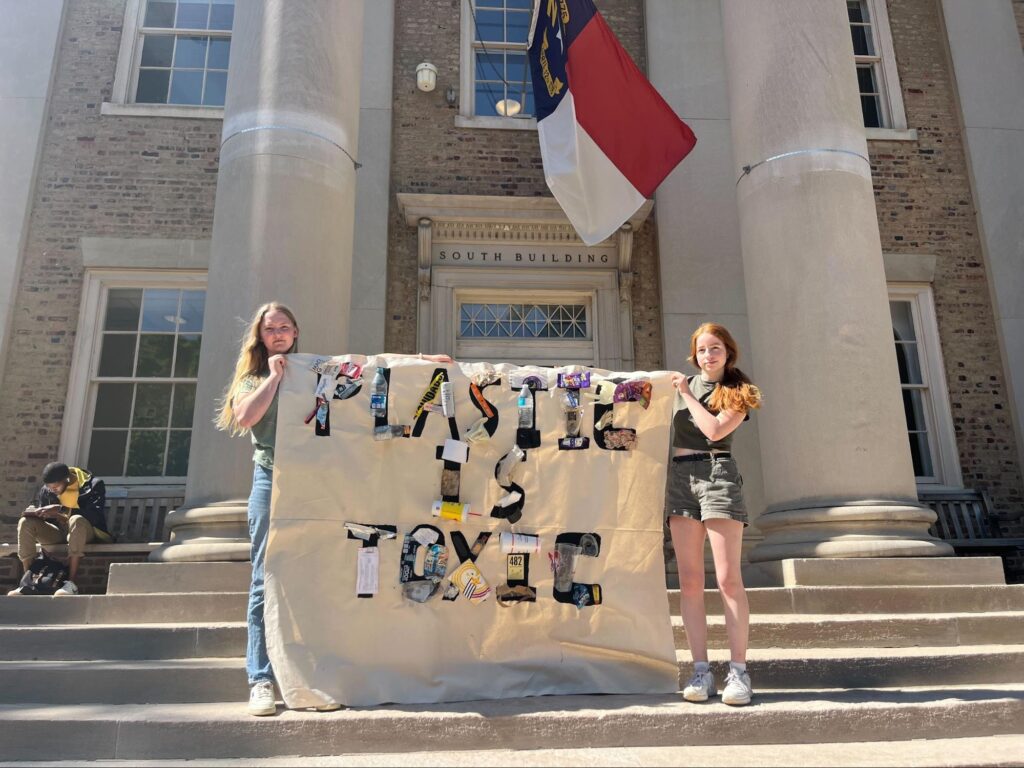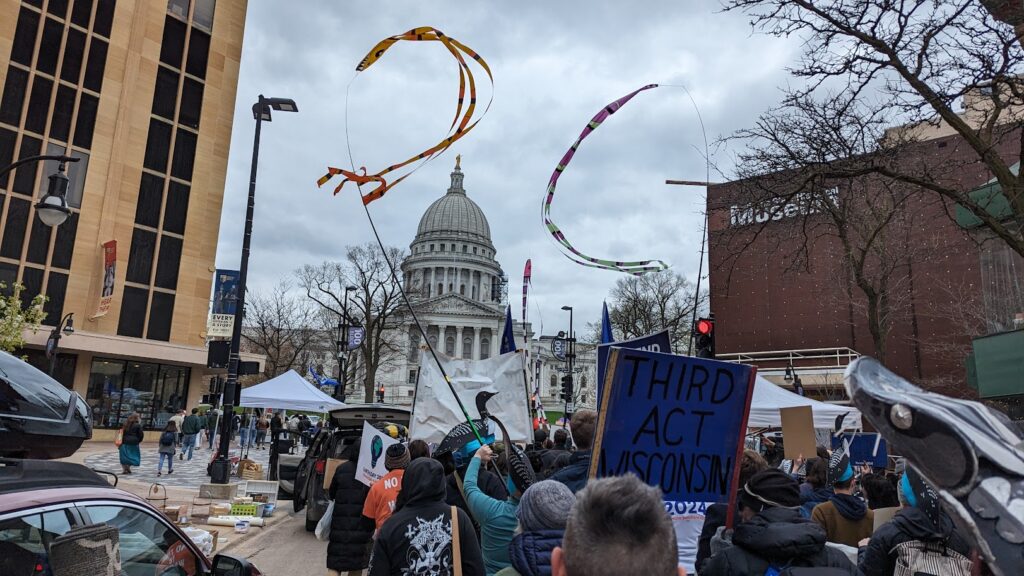Campus Coalition
Students Don’t Care About Plastic, They Care About People
May 14, 2024
On October 4th, 2023, I joined the team at EARTHDAY.ORG as college campus coordinator. Two days later, Hamas attacked Israel killing over 1,100 Israelis and kidnapping 252 people. Since then, the Israeli government’s response has killed over 30,000 Gazans. It is no surprise that the war has motivated students to protest. Regardless of your opinion on the conflict, the attention these protests have generated is a testament to the power of the student voice.
Earth Day was born from the growing environmental and anti-Vietnam war movements, led by college students, back in the 1960s. In the wake of the Santa Barbara oil spill in 1968, the ‘green’ movement was already gaining steam but under the direction of Senator Gaylord Nelson, and with student organizer Dennis Hayes and Congressman Pete McCloskey supporting him – the movement exploded. They worked with students across the US to hold the first Earth Day in 1970, employing the same strategies used to protest the Vietnam War. They mobilized an estimated 20 million Americans, in an era before social media or cell phones, using tried and tested grassroots efforts to galvanize young people who demanded a better future, just as they had demanded an end to the Vietnam War.

My task this year was to try and get some of that same energy and passion to ignite activism against the plastic industry. But I won’t lie, it wasn’t easy to motivate students to do that with the backdrop of the Israel-Hamas war.
On top of that, like so many holidays in America, Earth Day has had the classic corporate promotional treatment. Some of the biggest plastic polluters on the planet like Coca-Cola and PepsiCo, and many others all clamor to “celebrate” Earth Day while they dump CO2 into the atmosphere, and damaging chemicals into our communities. Students are rightly concerned about their efforts contributing to greenwashing. At EARTHDAY.ORG we don’t “celebrate” Earth Day we observe it and we use it to leverage action to support the environment.
But many students do recognize that Earth Day can be a powerful tool for their advocacy and that the human suffering caused by plastics warrants their action. Plastics release microplastic particles and leach additive chemicals, which contaminate our soil, water, air, wildlife, and our own bodies. There’s growing evidence they are associated with an array of human health issues.

Plastic producing facilities are often built next to low-income communities of color, who suffer higher rates of cancer and asthma as a result, creating a very real environmental justice crisis.
This year we had some successes. EARTHDAY.ORG brought students together on 40 campuses across the U.S. to amplify the message that plastic is toxic. 40 is a modest number, but it is meaningful. Students organized in Arizona, Missouri, Florida, Georgia, North Carolina, Wisconsin, Michigan, Pennsylvania.
Through clean-ups, signature drives, demonstrations, marches, and more, students focused their attention on the United Nations Global Plastic Treaty, which was negotiated for the fourth time, during the week of Earth Day in Ottawa, Canada. Students used their platform to try and push the U.S. government to support adding limits on plastic production and acknowledge the health implications of ingesting and inhaling microplastics. Students in Washington D.C. held a demonstration at the White House, bringing the issue directly to those who control the U.S.’s stance on plastic.
The Earth Day Campus Coalition grew from zero students, zero faculty, and zero administrators actively involved, to hundreds in the span of just four months. It taught me valuable lessons about how to engage students but also proved to me that students care deeply about people; keeping them safe and treating them fairly, and they want to engage in actions that can have a tangible impact. Those lessons informed our strategy this year and will inform our strategy for the better for years to come.
The future of Earth Day on college campuses is bright. We set a solid foundation this year. We will continue to grow our Campus Coalition and support students to take their rightful place at the helm of the Earth Day movement. I am confident students can use Earth Day to amplify their voice and take substantive action. EARTHDAY.ORG was created by the same people who mobilized millions for the very first Earth Day on April 22nd, 1970. That spirit is still with us still and our students are our flag bearers.